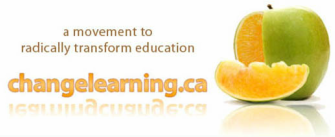The service includes stacking wood or clearing leaves, and taking part in projects with local conservation and historical societies, such as protecting wildlife habitats and mapping early graves.
Read more

|
|
|
A high school in New Hampshire, USA, has developed a curriculum that revolves around working with the local community, as students carry out 150 hours of community service a year.
The service includes stacking wood or clearing leaves, and taking part in projects with local conservation and historical societies, such as protecting wildlife habitats and mapping early graves. Read more
0 Comments
The centre:
The Saturna Ecological Education Centre (SEEC) is an experiential, place-based ecological learning centre on beautiful Saturna Island, British Columbia. Our programs: We provide Southern Gulf Islands students with elementary Eco-Adventures and high school Environmental Studies programs. Curriculum Connections: Our programs connect to the BC education curriculum, while encouraging learners to go deeper, immersing themselves in the natural world to feel, understand and act for the environment. Our explorations integrate science, social studies, physical education, language arts and fine arts to create unique learning adventures that promote critical thinking, social responsibility and personal growth. While our initial focus is on the students of our own School District #64 community, we are carefully planning and working towards offering our programs to learners of all ages from everywhere else! Please let us know if you’d like to join us! Read more Imagine a School was a dramatic performance created by high school students from Halifax, Toronto and Vancouver that opened CEA’s symposium “Getting it Right for Adolescent Learners” in 2006. Find out what adolescents are saying about their experiences in high schools and what schools would look like if we “got it right”.
Read more Tell Them From Me is an assessment system that measures a wide variety of indicators of student engagement and wellness, and classroom and school climate that are known to affect learning outcomes. The anonymous survey covers areas including: perceptions of testing, involvement in sports teams and clubs, attendance, hours spent watching TV, a sense of belonging, post-graduation goals, bullying, self esteem, student anxiety and depression.
Read more Since closing its large juvenile training schools 20 years ago, Missouri has become a model for the nation in juvenile corrections. The small scale and therapeutic, family-oriented atmosphere distinguish Missouri’s juvenile facilities from the training schools common throughout most of America.
Read more Over 40 billion dollars a year is spent in Canada getting our children from Kindergarten to Grade 12,[i], yet over 40% of our youth fail to meet expected performance levels for basic subjects[ii] and almost one quarter of our children fail to graduate with their peers.[iii]. Students are disengaging grade by grade[iv], a trend illustrated by their increasing dislike for school[v], declining academic achievement[vi] and rising rates of teenage depression[vii] and suicide[viii]. Contrary to Canada’s most fundamental democratic tenets, minority and low-income children are the hardest hit[ix]. Public opinion polls show confidence in the education system is at an all-time low[x], home schooling is growing exponentially and the number of children attending private schools has doubled in the past 25 years[xi]. An ever increasing number of factors point to a deeply flawed system that is failing our youth and our society. We see this failure reflected daily on our streets, in our malls and in the news. Learn more about signs of trouble.
Read more Through What did you do in school today?: Transforming Classrooms through Social, Academic and Intellectual Engagement, the Canadian Education Association, in partnership with the Canadian Council on Learning and school districts across Canada, are bringing life to the idea of student engagement in the classroom, and exploring its powerful relationship with adolescent learning, student achievement, and effective teaching.
A first look at the initiative’s results are presented in the initiative’s first national report – What did you do in school today?: Transforming Classrooms through Social, Academic and Intellectual Engagement, written by J. Douglas Willms, Sharon Friesen and Penny Milton, along with two supporting documents,Exploring the Concept of Student Engagement and its Implications for Teaching and Learning in Canada by Jodene Dunleavy and Penny Milton, and Teaching Effectiveness: A Framework and Rubric, by Sharon Friesen. Link: http://cea-ace.ca/res.cfm?subsection=wdy Overschooled but Undereducated: How the crisis in education is jeopardizing our adolescents11/29/2009 The basic function of education in all societies and at all times is to prepare the younger generation for the kind of adult life which that society values, and wishes to perpetuate.
By misunderstanding teenagers’ instinctive need to do things for themselves, isn’t society in danger of creating a system of schooling that so goes against the natural grain of the adolescent brain, that formal education ends up trivializing the very young people it claims to be supporting? By failing to keep up with appropriate research in the biological and social sciences, current educational systems continue to treat adolescence as a problem rather than an opportunity. Read more |
Categories
All
Archives
August 2015
|